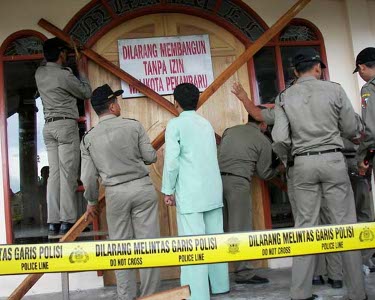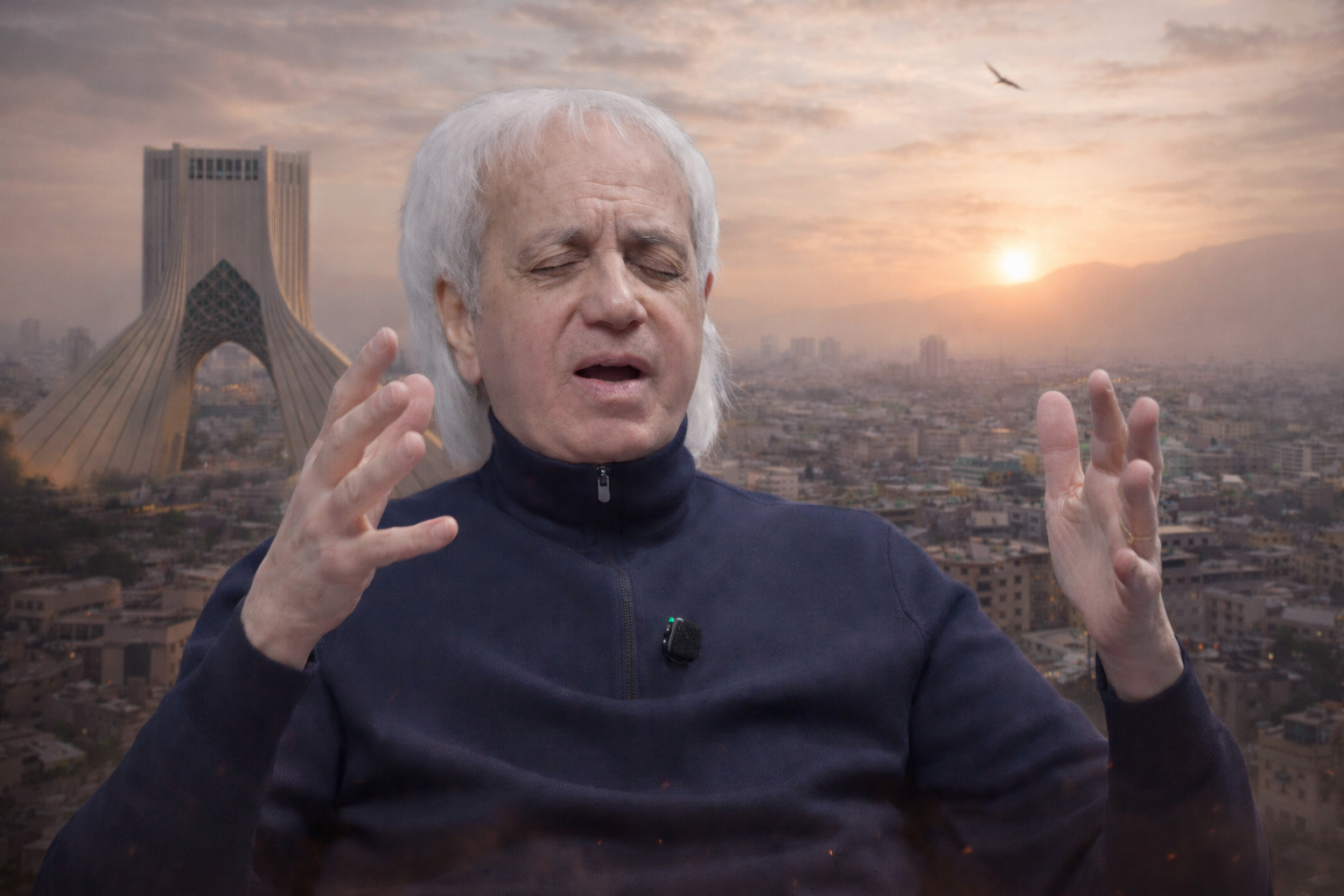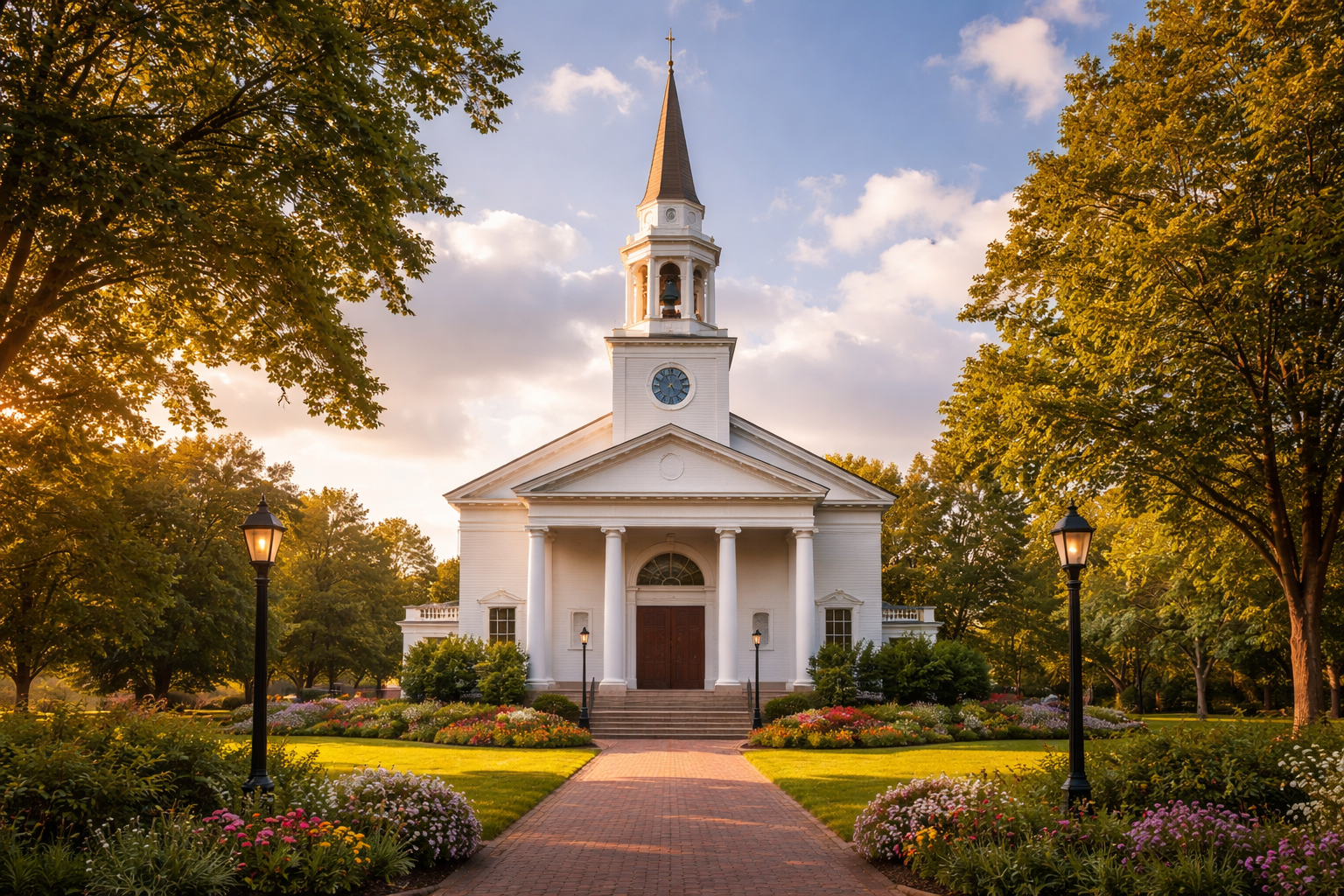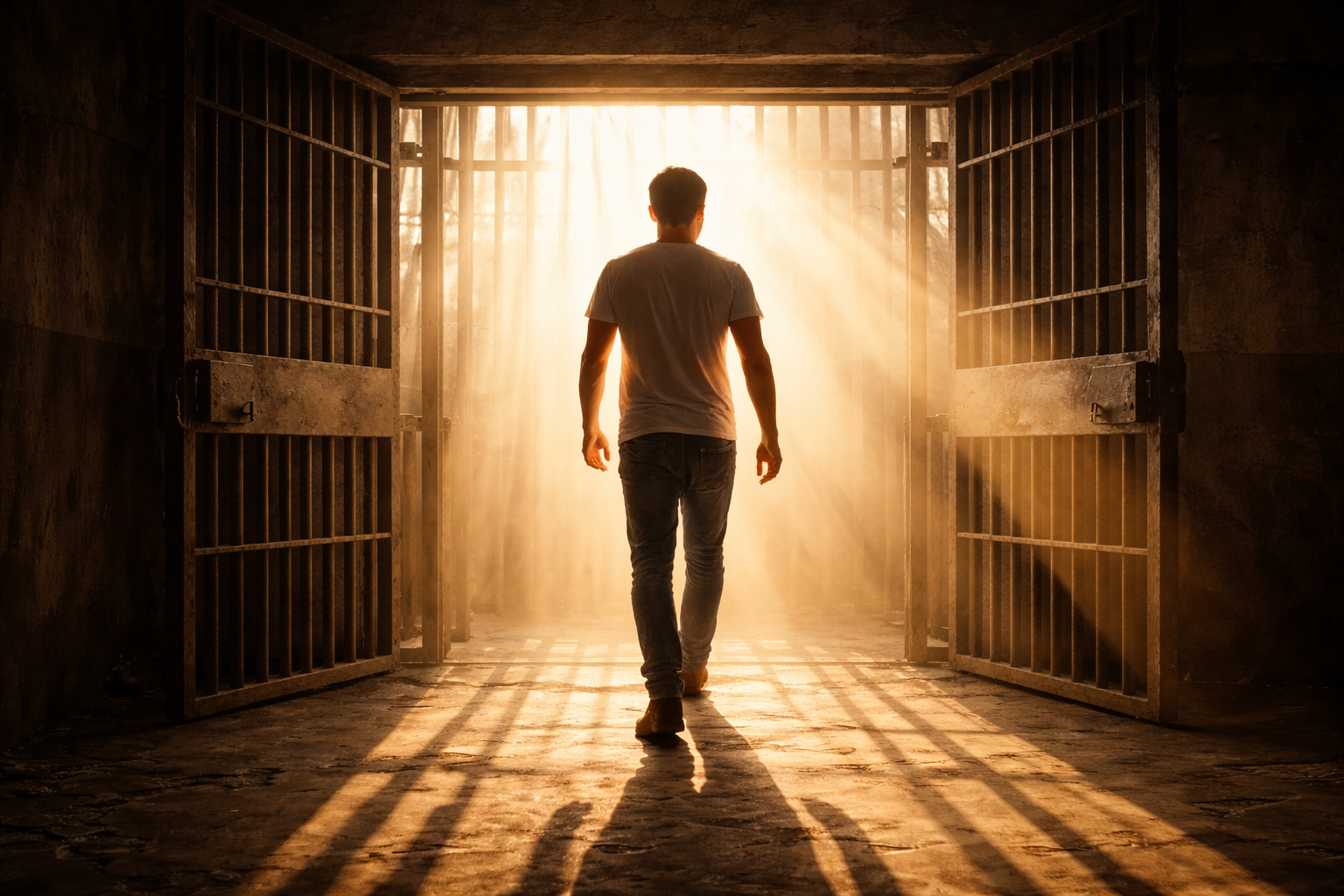
The Halal Product Guarantee Bill and the Zakat Obligatory Alms Management Bill, both under consideration in the Indonesian parliament, cater to the needs of one religious group at the expense of others, violating Indonesia’s policy of pancasila, or religious tolerance, said the Rev. Dr. A.A. Yewangoe, director of the PGI.
(Photo: Indonesian police have forcibly closed some churches and Christian organizations. Image courtesy of Charisma Indonesia)
“National laws must be impartial and inclusive,” Yewangoe told Compass. “Since all laws are binding on all of the Indonesian people, they must be objective. Otherwise discrimination will result … The state has a duty to guard the rights of all its citizens, including freedom of religion.”
Dr. Lodewijk Gultom, head of PGI’s Law and Human Rights Department, pointed out that according to regulations on the formation of proposed laws, a bill cannot discriminate against any group of citizens. But the Halal product bill several times mentions sharia, as if Indonesia were an exclusively Muslim state, he said.
“If this bill is enforced, it will cause other religions to demand specific rights, and our sense of unity and common destiny will be lost,” Gultom said.
Gultom also said the bills were an attempt to resurrect the Jakarta Charter, a statement incorporated into Indonesia’s constitution in 1945 before it was quickly withdrawn. It declared that the newly-created state would be based on a belief in the one supreme God “with the obligation to live according to Islamic law for Muslims.”
Public opinion on the Jakarta Charter remains sharply divided, with some insisting that Islamic law is warranted because of the country’s Muslim majority, while others believe its implementation would disturb national unity.
Two members of Parliament, Constant Pongawa and Tiurlan Hutagaol, both from the Prosperous Peace Party, have requested the withdrawal of the Halal and Zakat bills to avoid creating conflict between Muslims and other religious groups.
“These bills are a step backward and will lead to the isolation of different religions,” agreed Ronald Naibaho, head of the North Sumatran chapter of the Indonesian Christian Youth Movement.
National church leaders have requested a meeting with President Susilo Bambang Yudhoyono to discuss the impact of these bills and a number of other discriminatory laws being applied at provincial levels across the country.
Church, Orphanage Closed
Muslim groups, meantime, recently moved to close more Christian institutions.
On July 21, following complaints from community groups, police forcibly dismantled a church in West Java on grounds that it did not have a building permit, while similar groups in East Java successfully lobbied for the closure of a Catholic orphanage claiming that it planned to “Christianize” local children.
Police in Bogor district, West Java, dismantled the temporary bamboo structure erected by the Huria Kristen Batak Protestan church in Parung Panjang on July 21. Church leaders insist that the church had long ago applied for a building permit that was not granted even though they had met all requirements, including obtaining permission from the Bogor Interfaith Harmony Forum.
“There are 234 buildings in Parung Panjang that lack building permits, including a mosque,” church elder Walman Nainggolan told Compass. “Why was our house of worship singled out?”
The church has filed a complaint with the National Human Rights Commission of Indonesia. Commissioner Johny Nelson Simanjuntak agreed to clarify the status of the church building permit with local officials and asked local police to permit peaceful worship as guaranteed by the constitution.
Separately, a group of Muslims lobbied for the closure of a Catholic orphanage for crippled children in Batu, in the Malang district of East Java, stating concern that the facility would become a covert vehicle for “Christianization.” In response to demonstrations in front of the mayor’s office in October 2008 and June 2009 and complaints from 10 different Muslim religious and community organizations, Batu Mayor Eddy Rumpoko on June 19 rescinded a building permit issued to the Catholic Bhakti Luhur Foundation and ordered that construction cease immediately.
The foundation operates 41 orphanages serving approximately 700 children with special needs.
“We are greatly saddened by this action,” the Rev. Laurentius Heru Susanto, a local vicar, told Compass. “The home was meant to serve the people. There was no other purpose.”












































